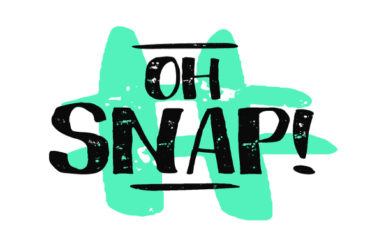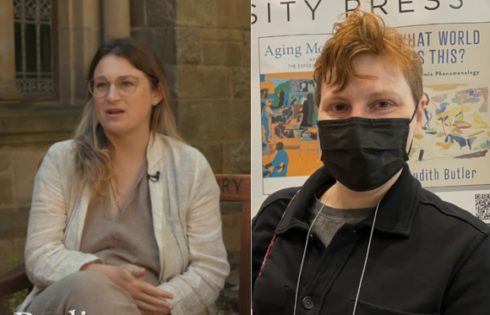
When so-called intellectuals compare aspects of the animal kingdom to human society in an attempt to show how “woke” they are, it usually doesn’t end well.
Earlier this month a PhD in feminist studies told us we could learn about rape culture and oppression by observing man’s (oops, humans’) best friend in dog parks.
Now, a Harvard PhD student in microbiology and immunobiology informs us that hyenas can teach us something about the #MeToo era.
“How a pseudopenis-packing hyena smashes the patriarchy’s assumptions” is the title of Katherine Wu’s article at Vox.com, and it is pretty much just as you’d expect.
“Like many young women,” Wu begins, “I grew up aspiring to fit into a patriarchal world. While the boys in my elementary school were encouraged to focus on their professional achievement and financial success, I was instructed to cross my legs, minimize my food intake, and coo at plastic babies with fluttering eyelids.”
“Every cultural signal” that Wu uncovered showed “men at the top of the food chain” — in the news, “leading Fortune 500 companies, accepting Nobel Prizes.”
But — she discovered empowerment in, of all places, the spotted hyena, “possibly one of the most inspirational examples of feminism in the natural world”:
Unlike most other mammals, spotted hyenas (Crocuta crocuta) live in matriarchal societies led by alpha females. In these clans throughout sub-Saharan Africa, females do the majority of the hunting, dictate the social structure, and raise cubs as single mothers. Even the highest-ranking male in the group is subservient to the most junior female. Accordingly, male spotted hyenas have evolved to be comparatively diminutive, weighing about 12 percent less than females — a feature uncommon even among matrilines.
Wu’s thesis was spotted (no pun intended) by research scientist Oliver Höner, co-founder of the Tanzania-based Spotted Hyena Project, and, well, look:
One of the worst pieces about hyenas + hyena society in the last years! Angry that our institute’s and project’s names appear in it.
— Hyena Project (@HyenaProject) June 19, 2018
In The Stranger, Höner tears into Wu’s piece:
1. “Even the highest-ranking male in the group is subservient to the most junior female.” This statement is wrong because both sons and daughters obtain the social rank just below their mother. As an example, the son of an alpha female will be ranked just below his mother, and above ALL other females (and males) of the clan.
2. “Females do the majority of the hunting, dictate the social structure….” Immigrant males are ranked below all native clan members and have to do most of the hunting to get enough food to survive. Females do not dictate the social structure: It is influenced equally by females and males.
3. “Male spotted hyenas have evolved to be comparatively diminutive.” A recent scientific study on a large number of hyenas has shown that sexual size dimorphism is very small and only evident in some morphological traits and absent in others.
Then there’s the #MeToo stuff:
There is no evidence that hyenas are aware of male privilege and she’s projecting human emotions onto non-human animals. Besides, Höner says, she’s wrong. “Males actually regularly team up to harass single females,” he says. “We even have a specific term for this: ‘baiting.’ During these baitings, males may even bite and severely injure a female.” Human males, maybe don’t take note.
As for that “pseudopenis” in the article title which Wu says “appears alarmingly misogynistic at first glance,” Höner notes it is merely “an enlarged clitoris and it’s the organ through which female hyenas mate, urinate, and even give birth.”
“It’s not ‘alarmingly misogynistic’ at any glace; it’s not even human,” he says.
The Hyena Project’s Beth Windle follows up: “Personally, it was the idealized view of the female spotted hyena that shocked me the most [about Wu’s article]. We know that ‘hyena matriarchy’ theories are very popular, despite being factually wrong and outdated.”
Windle adds that she can understand the temptation to make use of animals as a form of “inspiration and symbolism”; however, “[W]hat I don’t understand is bending scientific fact (even if it may seem positive) to be a form of empowerment to a human.”
Read the full Vox.com and The Stranger stories.
MORE: Study: Dog parks are manifestations of rape culture and oppression
MORE: Study: Female animals less colorful ‘to avoid sexual harassment’
IMAGE: Orange Vectors/Shutterstock.com
Like The College Fix on Facebook / Follow us on Twitter






Please join the conversation about our stories on Facebook, Twitter, Instagram, Reddit, MeWe, Rumble, Gab, Minds and Gettr.